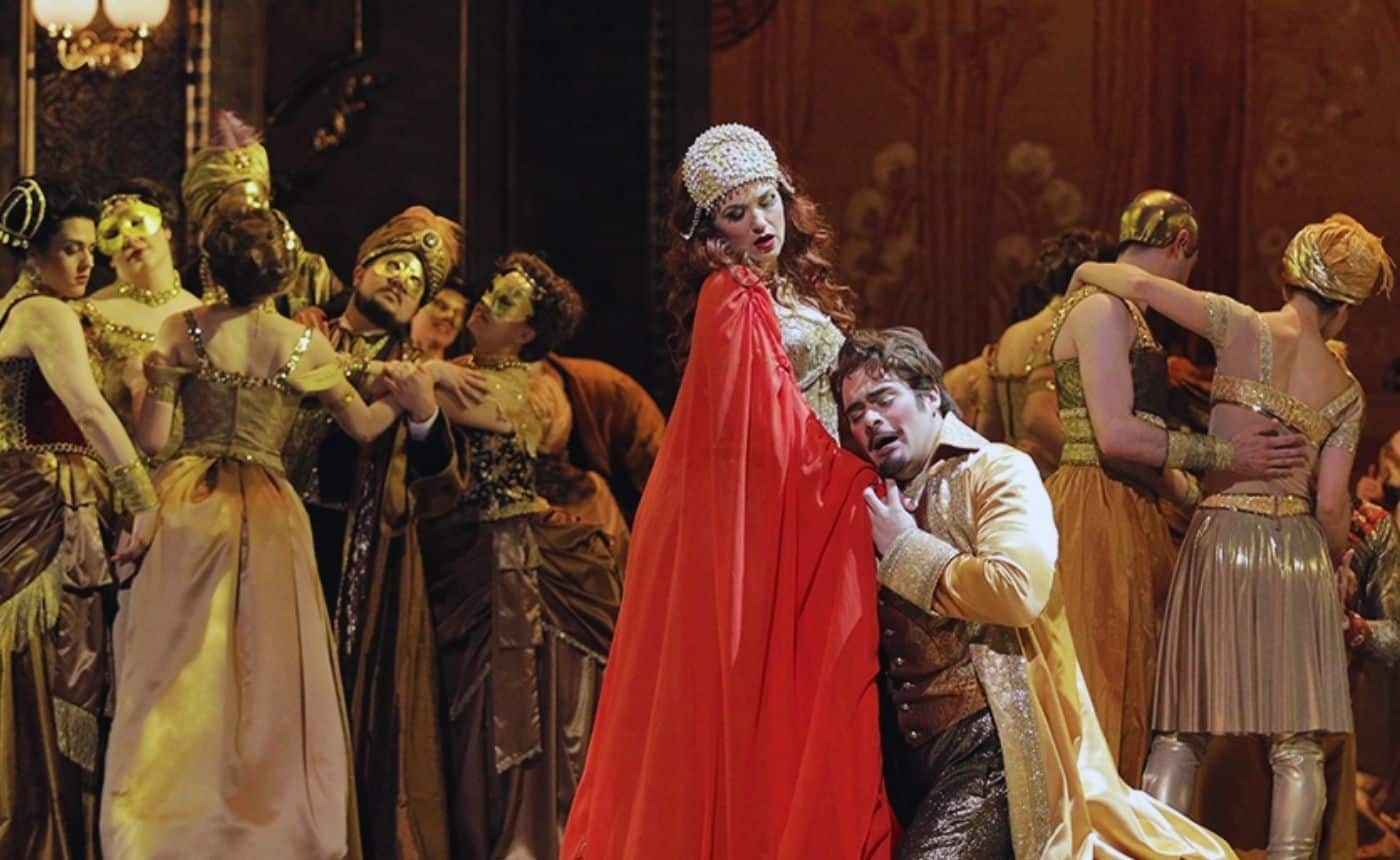Modern Butterfly’s Child by JEAN TOKUDA IRWIN
The daughter of a Japanese woman, who was banished for bringing dishonor to her family, and an American Naval Officer, who never returned, shares her story as a real-life Butterfly baby.
I don’t know how many times I’ve seen Puccini’s Madame Butterfly. I know that it will always make me cry. I will always be angry with Pinkerton. My chest will always hurt for a couple of days. The music is hauntingly beautiful, the story is timeless, and it does help me deal with some unknown parts of my life.
I am a Madame Butterfly and Pinkerton child from occupied Japan, after the war. When my uncle, the oldest male in the family, discovered my mother was pregnant with a GI’s child, she was banished for bringing dishonor to the family. My grandmother went with my mother to Yokohama where I was born and where they waited almost four years for my father to return. My Navy officer father never returned. In desperation, and with no means of financial support, my grandmother wrote a letter explaining the circumstances of my birth. In the letter, she said I had been named “Jean” at the request of my father, who wanted me named after his mother in America. My grandmother and mother left me, the letter, and all of my family papers (recorded on onion skin paper) with a German physician who ran an orphanage during the U.S. occupation years in Yokohama.
Eleanor, the only daughter of an American Methodist minister, saw me in the front yard of the orphanage. I was the only child with light brown hair. I was obviously a “konketsuji,” a child of mixed race or as some called me, GI bastard child. Eventually, I went to live with the Americans who lived in Japan, and the Methodist minister’s family adopted me. However, Onishisan, the housekeeper, was the main person who took care of me. I grew up like an only child because my adopted sister was always away at an American boarding school. I remember dragonflies were my playmates, and I spent hours in the garden with them. Onishisan told me to always be kind to them and the earth and all living creatures. I also remember having tuberculosis and living in a white room in a sanitarium. I watched the outside through a window while confined to my stainless steel bed. I watched the leaves turn red and fall to the ground, the snows come and then the spring cherry blossoms and the delicate green bamboo leaves. I remember walking in soft rains with rain drops falling on a waxed paper umbrella. Nothing today sounds quite like that. I remember waiting for the man who brought a metal cart filled with roasted sweet potatoes to the villages. I remember poking a wet finger through our shoji screen because I wanted to see the song birds outside. I remember the puppeteers who came with little puppet stages hanging on their chests, I remember the sound of taiko drums, the sweetness of persimmons after the first frost and the sound of the weaver’s loom clacking and clacking and clacking. I remember the smell of incense. I remember my American parents moved often.
When I was a teenager, my American parents retired and returned to the United States to live. I am a naturalized citizen. Now my adopted parents are no longer alive, and I only have my American sister who can confirm pieces of my life when she was around, which wasn’t often.
I often wonder what happened to my mother. Japan has no record of her death or whether she still lives in Japan. So many times, I’ve wondered about my American grandmother, Jean. Does heart disease, diabetes or mental illness run in my family? I’ve met many American men who went back to Japan, the Philippines, Vietnam, Korea and Thailand to retrieve wives, girlfriends and children. Why didn’t he?
So, each time I see Madame Butterfly, I look to the shadows of my past and I ask myself old and new questions. Mostly, I grieve for all the Butterflies and their children. When I’m feeling most forgiving, which isn’t very often, I grieve for the Pinkertons.
Jean Tokuda Irwin oversees programming in Arts Education, Literature & the Chase Home Museum of Utah Folk Arts for the Utah Division of Arts and Museums.







